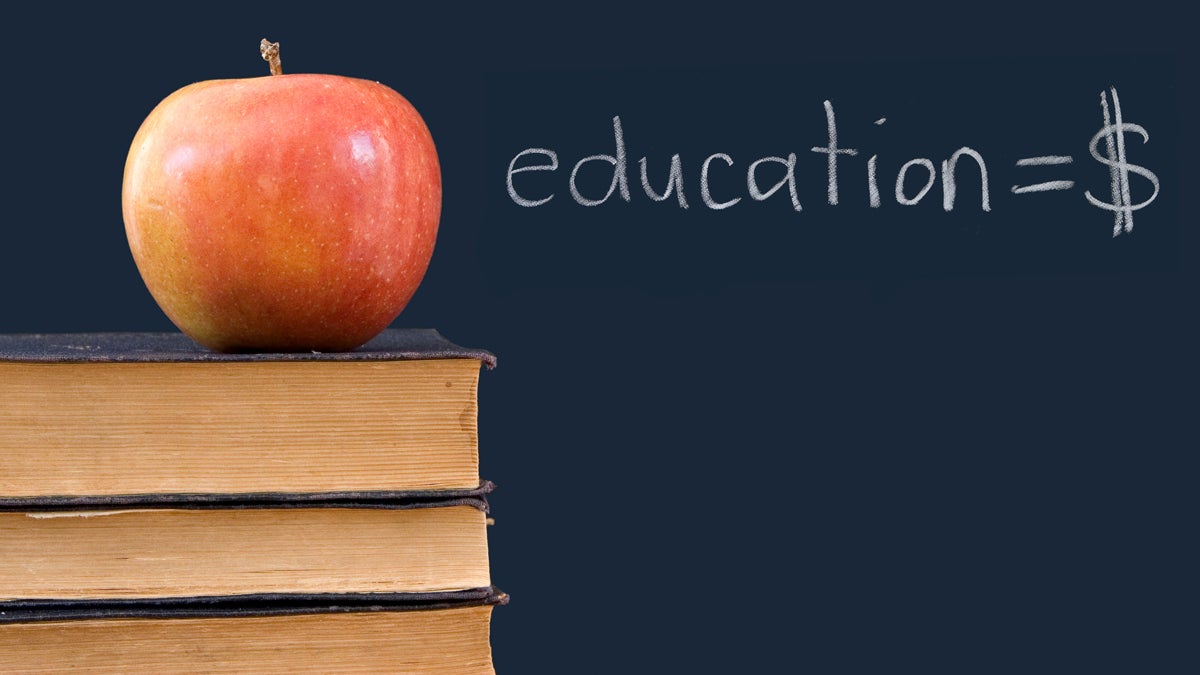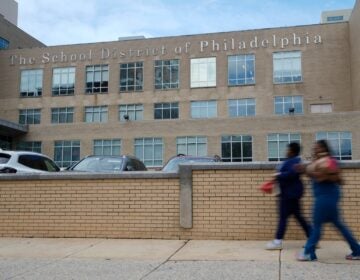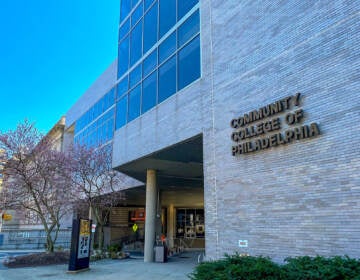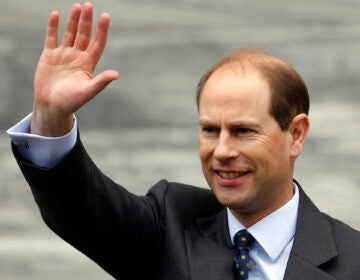Gift to expand Philly charters could come with costly strings attached
 Photo via ShutterStock) " title="sseducationcostsx1200" width="1" height="1"/>
Photo via ShutterStock) " title="sseducationcostsx1200" width="1" height="1"/>
(Photo via ShutterStock)
The region’s most prominent education reform advocates want to give the Philadelphia School District millions of dollars to help it expand charter schools.
“It has become clear that cost concerns are hindering the [School Reform Commission] from making decisions about the charter applications in the best interest of kids and families,” said Mark Gleason, head of the Philadelphia School Partnership, in a statement announcing the plan.
But critics say PSP’s proposed donation would cover just a fraction of the new costs charters create, potentially adding tens of millions of dollars annually to the district’s expenses.
“It’s like giving a wedding present to someone that you know is already broken,” said Donna Cooper of the advocacy group Public Citizens for Children and Youth, which has called for a halt to charter expansion due to the district’s ongoing financial crisis.
The proposed donation from PSP, a nonprofit that raises money to support charter schools and other “high performing” school models, would send $25 million to the district to offset the cost of expanding charter seats.
PSP would like to see 15,000 seats added in the next six years. Its donation would provide a one-time payment of about $2,000 for each new charter seat created. The donation is intended to cover some of the costs of transition, such as the extra per-pupil funding charters get.
Gleason called this “the best way to ensure that the SRC can make decisions based solely on the merits of these applications [for new charters] – and give more students access to a high-quality education.”
However, district officials and outside observers say those transition costs could be more than three times higher than PSP’s estimates.
The district estimates that each new charter seat adds as much as $7,000 in costs, because of what are known as “stranded costs” — the relatively static expenses left behind when a student leaves a district school for a charter. They include the costs of heating and maintaining the building, staffing the principal’s office, and providing extracurricular activities.
“You’re not going to do away with a teacher, or a school counselor or a nurse, or any other supports, just because one or two or three students are selecting to go from a traditional public school to a charter school,” district spokesman Fernando Gallard explained.
The district has yet to offer a detailed assessment of the PSP plan’s impact. But Gallard said that the proposed charter expansion could add as much as $400 million to the district’s costs over the next five years.
“A quick review shows that a half a billion dollars is not off the mark,” Gallard told the Philadelphia Inquirer, which did its own analysis of the possible costs.
The district’s estimate of $7,000 in costs for every new charter seat also takes into account the likelihood that many students from outside the district will want to enroll in new charters, raising the district’s total enrollment and, with it, overall costs.
The $7,000 figure was also cited several years ago by the Boston Consulting Group, as part of a broad analysis of the district.
PSP’s Gleason disputed that figure in a second statement, saying that BCG’s analysis “relied on a hypothetical example rather than district audits or financial statements.”
However, Gleason said the group was willing to keep negotiating. “PSP remains willing to discuss this issue with the district to reach a more complete understanding of the stranded costs,” he wrote. “If our methodology undercounts, we are willing to consider restructuring the proposal or endeavoring to raise additional funding.”
Critics of Gleason’s proposal say that PSP remains a long way from a financially viable proposal.
“I think that this is a pittance, frankly,” said Susan Gobreski, head of Education Voters PA. “It’s an unbelievably small amount compared to what the district may face if it opens those doors.”
WHYY is your source for fact-based, in-depth journalism and information. As a nonprofit organization, we rely on financial support from readers like you. Please give today.




